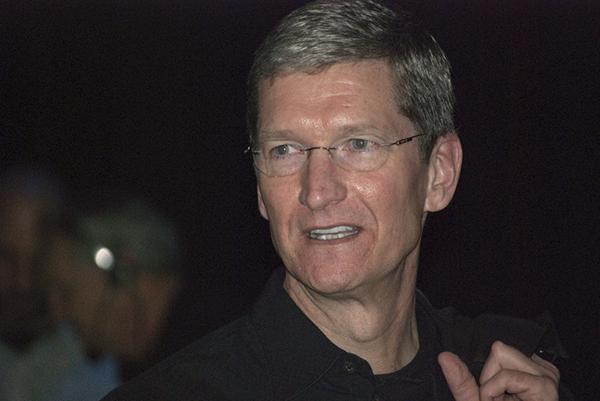What if the Science and Engineering Hall were named in honor of Tim Cook?
GW announced last week that Apple’s chief executive officer will be this year’s Commencement speaker. Experts say it’s an important step in building a relationship with a multi-millionaire who could eventually give a large donation.
While schools will look for a commencement speaker with “gravitas and experience,” Michael Nilsen, the vice president for public policy at the Association of Fundraising Professionals, said there’s a lot more that goes on behind the scenes as schools also consider a speaker’s ability to donate.
“Certainly, as you think of that group of people, you’ll look at relationships and how to get gifts later on. You can better believe there was a conversation about who should be speaking and what that might mean,” Nilsen said. “Whether that person may give now or later, I’m certain that is part of the whole cultivation process for a major gift.”
No Commencement headliner in recent years has publicly donated to the University. Lorraine Voles, GW’s vice president for external relations and a leader on the committee to pick the Commencement speaker, did not return a request for comment.
Past speakers at GW have included actress Kerry Washington and chef José Andrés. Officials have said that the University does not pick speakers because of how much they could potentially donate and does not expect them to make a gift. GW does not pay the speaker.
Nilsen also said school officials should be careful not “to be crass about” Cook speaking at GW by trying to focus on securing a donation.
“Nobody thinks, ‘Let’s get him here and he’ll make a gift,’ but it is the process of developing connections,” Nilsen said.
Though Cook did not attend GW, officials have been able to pair large gifts with the chance to speak at Commencement in the past. For example, after telecommunications billionaire Carlos Slim, who was the world’s richest man at the time, spoke before headliner Brian Williams three years ago, he created a scholarship fund for Mexican students to earn a graduate degree in business, engineering or international affairs at GW.
Cook’s net worth is not publicly reported, but his total compensation was $378 million in 2011, according to a 2012 Securities and Exchange Commission filing. Forbes has ranked him the No. 25 most powerful person in the world.
Landing a donation from Cook would take more than giving him the chance to speak on the National Mall, said Nicholas Williams, the associate director of the University of Southern California’s Center on Philanthropy and Public Policy.
“A lot of these kind of things are really relationship driven, and having somebody come to your school and speak is not going to result in a gift unless that gift is cultivated,” Williams said.
Since taking over as CEO of Apple in 2011, Cook has expanded the company’s philanthropy. Apple donated $100 million to Stanford University’s hospital and Product RED, a charity focused on fighting diseases like AIDS and tuberculosis, in 2012. Cook also started a charitable program for Apple employees that matched employee gifts of up to $10,000 a year.
The only other time Cook has given a commencement address was at his alma mater, Auburn University, in 2010. He has made donations to Auburn’s industrial engineering program, funding a professorship and two student scholarships. The amount of money he donated is not publicly available. Cook, who is 54 years old, also has an MBA from Duke University, but has never donated to that institution publicly.
Though GW has historically had trouble landing large gifts, the tide started to change last spring when it received a combined $80 million donation from billionaires Michael Milken and Sumner Redstone – neither of whom attended GW. Securing that gift took three years of talks between Milken and GW officials.
And a large enough gift could put Cook’s name on a GW building. The law school, business school and nursing school as well as the $275 million Science and Engineering Hall have yet to receive naming gifts. The cost to name the business school would come with a price tag of about $50 million, according to budget documents obtained by The Hatchet.
Cook, who earned a bachelor’s degree in industrial engineering from Auburn, could potentially be interested in donating to GW’s science and engineering programs, or the Science and Engineering Hall. Officials have touted the building as a way to attract top engineering students and boost the University’s research profile.
Experts said a relationship with Cook could also lead to a partnership with Apple if he takes an interest in GW programs. After Andrés spoke on campus last year, officials announced his new restaurant would open on the ground level of the Science and Engineering Hall this semester.
Richard Ammons, a fundraising consultant at the firm Marts & Lundy, said to attract a Cook donation, officials would need to make talking points about activities at GW that fall in line with his personal passions.
“You’d want to find if there are things that are going on at GW that connect with the issues that he feels are important,” Ammons said. “Whether that’s technology in education or maybe he has an interest in some health issue or cancer research.”
Colleen Murphy contributed reporting.







